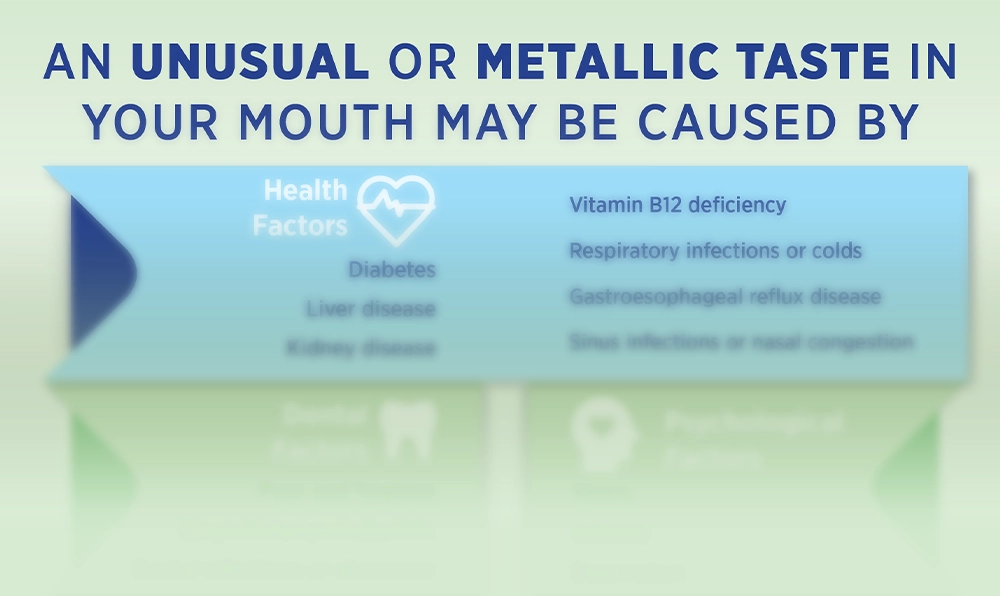
Have you ever left the dentist’s office with a strange metallic taste in your mouth? While this might not be a universally shared experience, it’s not uncommon to have this peculiar aftereffect following certain dental procedures. It’s intriguing to delve into the nuances of Dental Procedures and Metallic Taste and what might be behind this fascinating phenomenon.
There’s an array of dental procedures that can potentially lead to a metallic taste. The most common procedures include fillings, tooth extractions, and root canals. The materials used and the nature of the procedure often determine whether you’ll experience this peculiar sensation.
Silver amalgam fillings, composed of a mixture of metals, are a common source of this taste. When first installed, these fillings can cause a temporary metallic taste in the mouth. Fortunately, the taste often diminishes as the filling settles in your mouth.
Another situation that can lead to a metallic taste is after tooth extraction. The taste often stems from the blood clot that forms after the procedure. While it can be disconcerting, it’s completely normal and will usually disappear as the mouth heals.
During a root canal, dental files made from nickel-titanium or stainless steel are used. These metallic tools, along with the antiseptic solutions used, may leave you with a temporary metallic taste.
Now, why do these dental procedures result in a metallic taste? It’s all about the chemical reactions happening in your mouth. Certain metals, when in contact with the saliva, produce metal salts, which are responsible for the metallic taste.
Thankfully, the metallic taste usually doesn’t last long and tends to dissipate as the oral tissues heal. However, maintaining good oral hygiene and staying hydrated can help expedite the process. If the metallic taste persists for an extended period, it’s wise to consult your dentist. Interestingly, an oral rinse can be a simple solution for dealing with the metallic taste. A good rinse not only cleanses your mouth but also helps neutralize the taste.
Dental procedures can occasionally result in a metallic taste in your mouth. However, understanding the cause helps reassure that it’s usually a temporary and harmless condition. Always remember to consult your dentist if you have any concerns regarding your oral health.
While the metallic taste that sometimes accompanies dental procedures can be disconcerting, it’s generally temporary and a normal part of the body’s healing process. So, the next time you have a dental procedure and notice that peculiar taste, rest easy knowing that it’s just part of the process.
